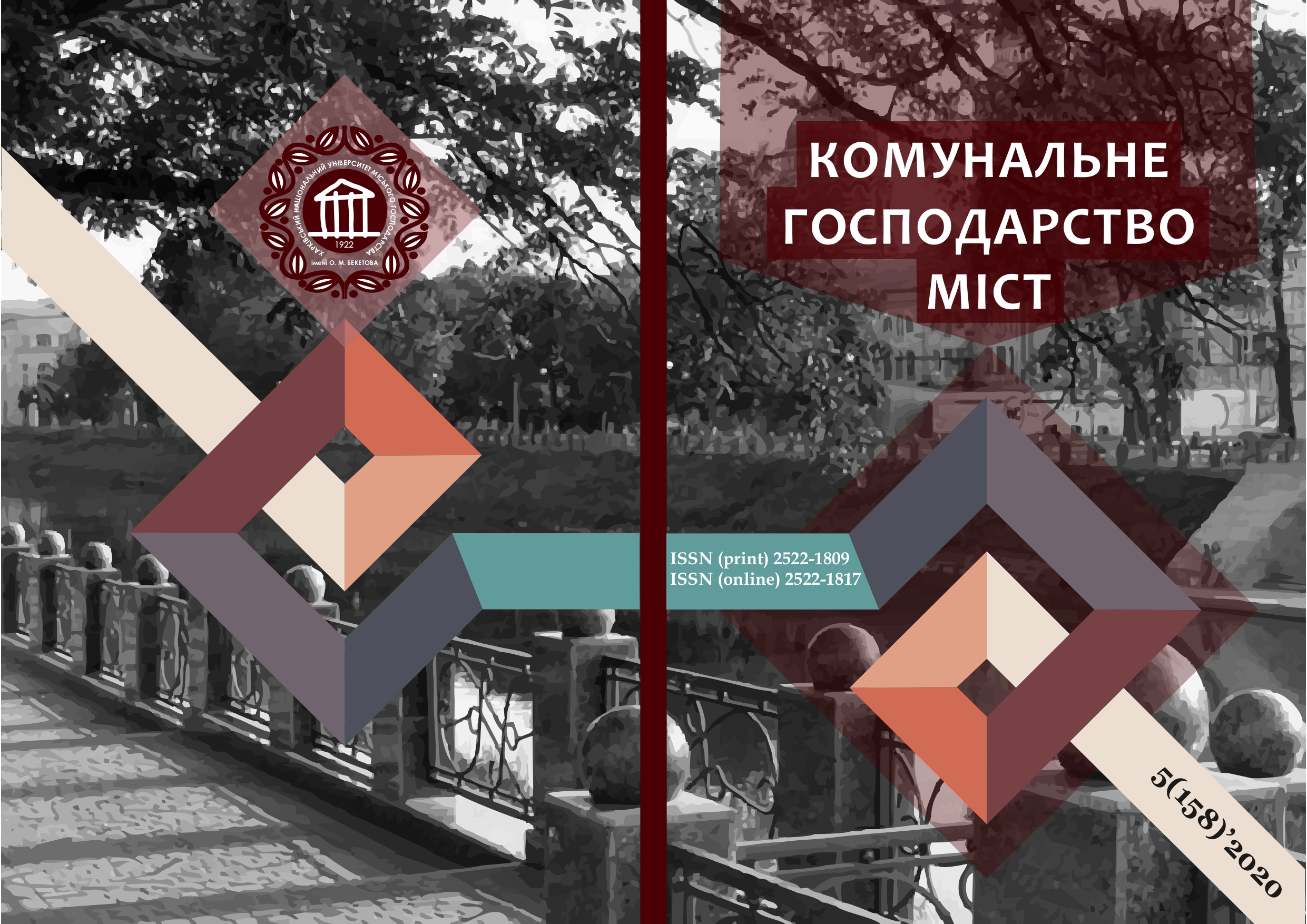HUMAN RESOURCES MANAGEMENT OF HEI THROUGH THE FORMATION OF EFFECTIVE HR POLICY
Array
Keywords:
human resources policy (HR policy), human resources management (HRM), institution of higher education (HEI).Abstract
There is a dearth of research in literature examining how people are managed in higher education institutions in Ukraine. This paper explores how universities manage their traditional personnel management system. The problems of formation of HR policy of the institution of higher education (HEI) in the context of its main directions are investigated. In the conditions of critical lack of financial resources, the organizational bases to increase the efficiency of application of HRM system in HEI are considered.
Our findings reveal some steps to help HEI in their long way to establish a modern HRM system. The basic perspective research directions which will allow implementing modern concepts of HRM in the academic environment are proposed. Among them are rejection of the paradigm student - graduate student - teacher within one HEI and assessment of scientific and pedagogical staff through 3 blocks: effectiveness; competence; potential for teacher development. The need and implications for future research are identified. The most perspective is the role of the positive OCB (Organisational Citizenship Behaviour) as a wide range of individual actions that go beyond assigned tasks because it is associated with constructive work that employees do of their own choice and benefits the company. As an effective motivational tool could be used the perception of the impact of different types of research and learning support by different categories of participants in the educational and scientific environment. It is also recommended to pay special attention to the creation of a high level of employee loyalty.
The insights from this study would be of value to the management of universities.
References
2. Morozova, M. E. (2015) Osoblyvosti upravlinnya personalom u vy`shhomu navchal`nomu zakladi. Teoriya ta metodyka upravlinnya osvitoyu, 1(15).
3. Mokin, B.I., Mokina, Yu.V. (2008) Matematychni modeli
uprav-linnya efektyvnistyu diyalnosti profesorsko-vykladaczkogo skladu vyshhyx navchalnyx zakladiv. UNIVERSUM-Vinnycya, 132.
4. Doronina, O.A., Ryazanov, M.R. (2019) Kadrova polityka yak instrument strategichnogo rozvytku zakladu vyshhoyi osvity. Ekonomika i organizaciya upravlinnya. 1 (33), 15–20. DOI 10.31558/2307-2318.2019.1.2.
5. Moroz, S. A., Dombrovska, S. M., Moroz, V. M. (2017) Rejtyng naukovo-pedagogichnyx pracivnykiv, yak skladova systemy derzhavnogo upravlinnya yakistyu vyshhoyi osvity Visnyk Nacionalnogo universytetu cyvilnogo zaxystu 2 (7), 294-309. DOI: 10.5281/zenodo.1038888.
6. Stepashko, V. O. (2004) Organizacijno-pedagogichni umovy fo-rmuvannya vykladaczkogo personalu u vyshhyx navchalnyx zakladax. Abstract for the degree of Candidate of Economic Sciences in the specialty: 13.00. 01, 18.
7. Xia, J., Cherrie Zhu, J., Fan, D., & Zhang, M. M. (2019). The “iron rice-bowl” regime revisited: whither human resource management in Chinese universities? Asia Pacific Journal of Human Resources. doi:10.1111/1744-7941.12214
8. Anwar, N, Mahmood, NHN, Yusliza, MY, Ramayah, T, Noor Faezah, J, Khalid, W, (2020), Green Human Resource Management for organisational citizenship behaviour towards the environment and environmental performance on a university campus, Journal of Cleaner Production doi: https://doi.org/10.1016/j.jclepro.2020.120401.
9. Hamadamin, H.H., Atan, T. (2019) The Impact of Strategic Human Resource Management Practices on Competitive Advantage Sustainability: The Mediation of Human Capital Development and Employee Commitment. Sustainability. DOI:10.3390/su11205782.
10. Popovych, O.S. (2019) Naukovo-texnologichna ta innovacijna polityka: osnovni mexanizmy formuvannya ta realizaciyi, 342.
11. Rozvytok lyudskogo kapitalu: na shlyaxu do yakisnyx reform : reforma sfery oxorony zdorovya, osvita, stan rozvytku nauky, migraciya, socialna polityka, lyudskyj ta socialnyj kapital, Ukrayina mizh Yevropoyu ta Aziyeyu (2018), Centr Rozumkova, 367.
12. Pfeffer, J. (1998) Six dangerous myths about pay. Harvard business review, 7, 3, 109-120.
13. Organ, D. W. (1988) Organizational citizenship behavior: The good soldier syndrome. Lexington Books/DC Heath and Com..
14. Campbell Pickford, Helen and Joy, Genevieve (2016), Organisational Citizenship Behaviours: Definitions and Dimensions. Saïd Business School WP 2016-31. Retrieved from SSRN: https://ssrn.com/abstract=2893021
Downloads
Published
How to Cite
Issue
Section
License
The authors who publish in this collection agree with the following terms:
• The authors reserve the right to authorship of their work and give the magazine the right to first publish this work under the terms of license CC BY-NC-ND 4.0 (with the Designation of Authorship - Non-Commercial - Without Derivatives 4.0 International), which allows others to freely distribute the published work with a mandatory reference to the authors of the original work and the first publication of the work in this magazine.
• Authors have the right to make independent extra-exclusive work agreements in the form in which they were published by this magazine (for example, posting work in an electronic repository of an institution or publishing as part of a monograph), provided that the link to the first publication of the work in this journal is maintained. .
• Journal policy allows and encourages the publication of manuscripts on the Internet (for example, in institutions' repositories or on personal websites), both before the publication of this manuscript and during its editorial work, as it contributes to the emergence of productive scientific discussion and positively affects the efficiency and dynamics of the citation of the published work (see The Effect of Open Access).

